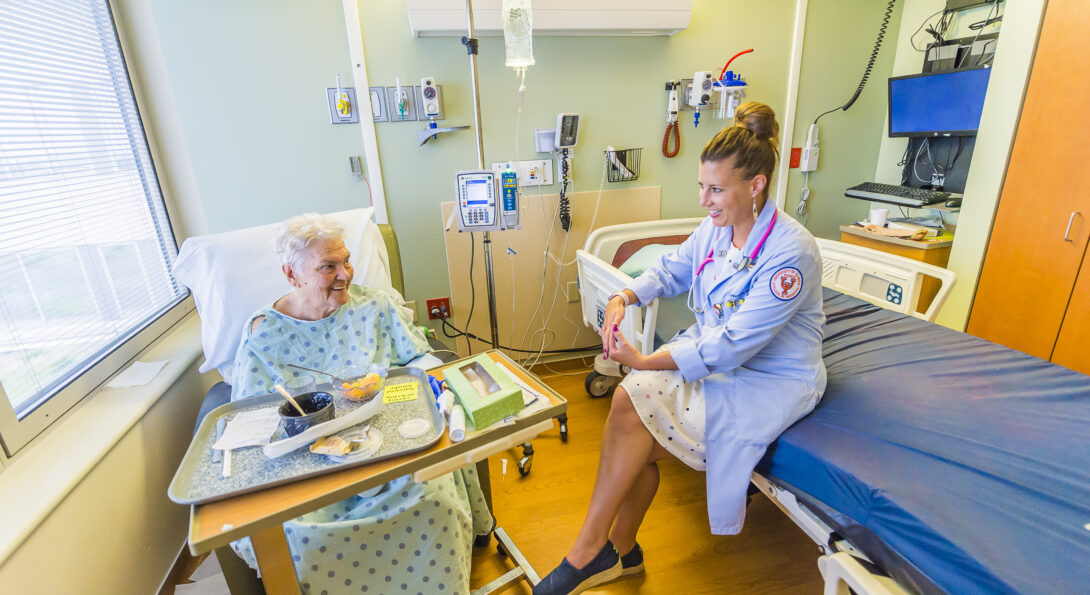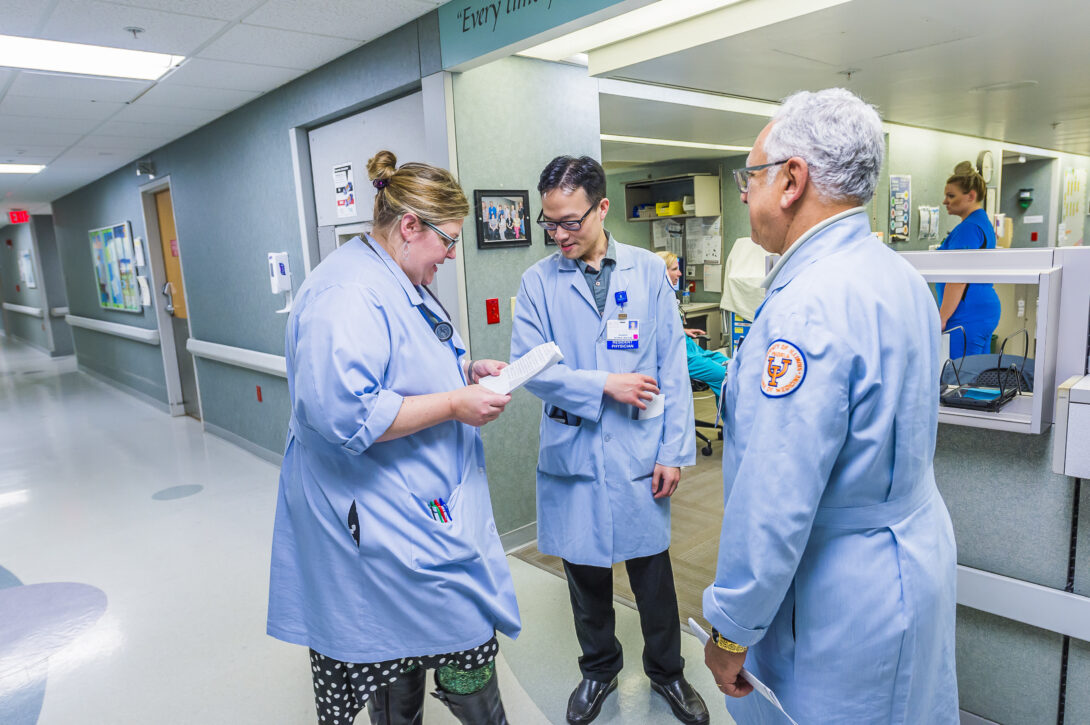Internal Medicine Residency Curriculum

Our curriculum is designed to give residents exposure to all aspects of inpatient and outpatient internal medicine. Residents will have the opportunity to rotate in all of the internal medicine subspecialties as well as other specialties such as allergy and dermatology. This curriculum fulfills all the requirements for board eligibility in Internal Medicine.
Core Curriculum Heading link
-
Included in this year
- 4 months Inpatient General Medicine Wards (UHATS service)
- 1 month Emergency Medicine
- 1 month Night Float
- 1 month Neurology (inpatient)
- 1.5 months Medical Intensive Care Unit (1 month days, 1 month nights)
- 1 month Intern Ambulatory Rotation (AIR)
- 1 month Specialty Rotation (see below)
- 1 month Cardiology
- 2 weeks of Hospice and Palliative Care
-
Included in this year
- 2.5 month General Medicine Ward Supervisor/Senior
- 1 month Senior Triage and Admitting Team (STAR)
- 1 month Resident Research Rotation
- 1 month Medical Intensive Care Unit Senior
- 1 month Night Float Senior
- 1 month Senior Outpatient Ambulatory Rotation (SOAR)
- 2 weeks of Point-of-Care Ultrasound Consult and Procedure Service
- 4 months Specialty Rotation (see below)
-
Included in this year
- 1.5 months General Medicine Ward Supervisor/Senior
- 1 month Senior Triage and Admitting Team (STAR)
- 1 month Medical Intensive Care Unit Senior
- 1 month Senior Outpatient Ambulatory Rotation (SOAR)
- 1 month of Geriatrics
- 2 weeks of Night Float
- 6 months Specialty Rotation (see below)
-
Choose from the following
- Cardiology (1 month required)
- Endocrinology (1 month required)
- Gastroenterology (1 month required)
- Geriatrics (1 month required)
- Hematology/Oncology (1 month required)
- Infectious Diseases (1 month required)
- Nephrology (1 month required)
- Pulmonary (1 month required)
- Rheumatology (1 month required)
- Anesthesiology
- Adolescent Medicine
- College Health
- Allergy and Immunology
- Sports Medicine
- Dermatology
- Radiology
- Occupational Medicine
- Sleep Medicine
- Procedural month
- Others with approval of the program director
More About Rotations
Residents are allowed away/outside rotations, pending program director approval.
Ambulatory clinic is 1 full day every 2 weeks. In addition, residents will have 1 month every year dedicated to outpatient medicine.
All residents rotate through a night shift month every year. Night float provides overnight coverage for the medicine wards without requiring additional call shifts.
Clinician Educator Track Heading link

This is a two-year longitudinal track that residents can apply to in order to deliberately practice skills used by a clinician educator:
- Establishing learning climate
- Giving feedback
- Teaching on the wards, in the clinic, in the simulation center
- Preparing for a career in academic medicine
- Getting involved in medical education research and curriculum design
Inpatient training Heading link
Inpatient experience with the UICOMP Internal Medicine program is through OSF St Francis and the University Hospitalist And Teaching Service (UHATS).
Patients at St Francis are admitted between two groups, the UHATS and the Adult Hospitalist Service (AHS), an attending-only service. UHATS has 5 teams covering 3 buildings. Each team is composed of 2 interns, 1 senior resident, and 1 attending; and are in charge of the care of a maximum of 15 patients.
Additionally, our association with the University of Illinois College of Medicine in Peoria allows opportunities to work frequently with medical students.
Procedural/consult inpatient service with point-of-care ultrasound
Our residents have the opportunity to rotate through an inpatient consult service to highlight the expertise we learn as internists and to practice being effective consultants.
We also perform ultrasound-guided bedside procedures such as thoracenteses, paracenteses, lumbar punctures, skin biopsies, and arthrocentesis.
Additionally, through the use of simulation and in POCUS rounds, we practice bedside evaluation of patients with the help of point-of-care ultrasound.
Outpatient Training Heading link
Residents in our program gain ambulatory experience at the Heartland Armstrong Clinic, an FQHC site.
Working with patients
Each resident follows a panel of their own patients in their continuity clinic. All residents see clinic patients one full day a week, every other week throughout the three years of training.
In an average half-day clinic, a resident sees 3 to 9 patients, depending on their level of training and experience. Faculty members are always present and available in the clinic to staff patients, answer questions, assist with patient care, and provide instruction when the residents are seeing patients.
Didactic sessions
Residents’ ambulatory education is enhanced by 15-minute “pre-clinic” sessions held before the morning and afternoon portions of the clinic day. These didactic sessions, led by faculty preceptors or chief residents, provide concise reviews on a wide range of topics relevant to ambulatory medicine. This pre-clinic instruction is supplemented by an online curriculum.
The Heartland Armstrong clinic is located on the OSF-Saint Francis Medical Center (OSF-SFMC) campus.
Senior outpatient ambulatory rotations
PGY2 and PGY3 residents spend one month each academic year rotating in the clinic evaluating outpatients with acute illnesses as well as those needing early follow-up after hospitalization. An advanced outpatient curriculum includes training in outpatient practice improvement and other clinical and business aspects of ambulatory practice.
Ambulatory intern rotation
This month-long clinic rotation designed for first year residents is designed to allow interns to learn the basics of outpatient medicine. There are a variety of experiences including lectures, direct patient care, self-guided learning, educational modules, and several didactic sessions taught by faculty.